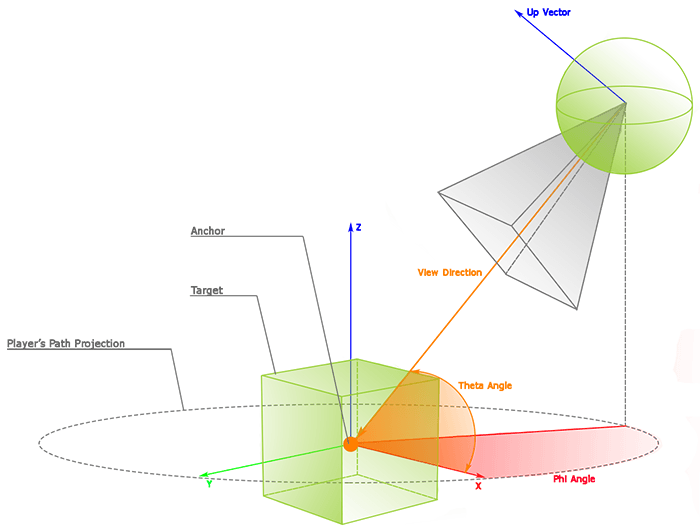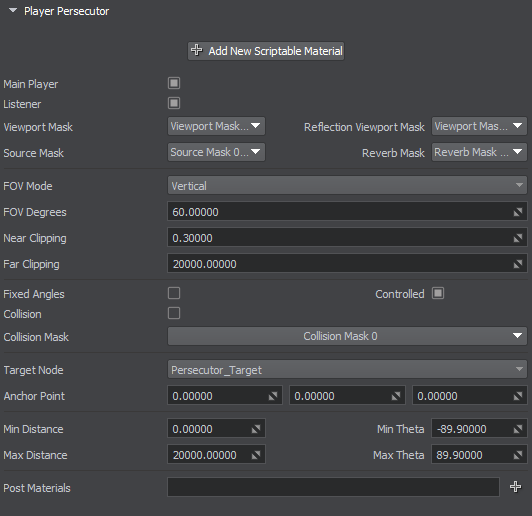Player Persecutor
A Player Persecutor is a flying camera without a physical body that follows the target node at the specified distance. The exact point of the target it follows is called an anchor. The persecutor can either turn around its target, or its viewing direction can be fixed. This camera is approximated with a sphere, which allows it to collide with objects (but it cannot, for example, push them or interact with them).

See also#
- The PlayerPersecutor class to manage the persecutor via API
Creating a Persecutor#
To create a Player Persecutor, do the following:
On the Menu bar, choose Create -> Camera -> Persecutor.

- Place the camera somewhere in the world and specify the required parameters via the Parameters window.
A dummy node named Persecutor_Target that represents an anchor is created along with the Player Persecutor. To make any object an anchor of the Player Persecutor, make that object a child of the Persecutor_Target dummy node.
Editing a Player Persecutor#
In the Player Persecutor section of the Node tab, you can adjust the bit masks, viewing frustum parameters, and post-process materials, as well as the specific parameters of the camera described below.

Control Parameters#
A set of parameters controlling persecutor movements:
| Fixed Angles | Toggles on and off the persecutor's ability to freely rotate around its target. If disabled, the Player Persecutor is oriented strictly in one direction. If enabled, only the phi angle is fixed, the theta can change. |
|---|---|
| Controlled | Toggles controls of the Player Persecutor on and off (the player's response to them). |
| Collision | Toggles collisions for the persecutor on and off. |
| Collision mask | A bit mask defining nodes the Player Persecutor is able to collide with. |
Anchor Coordinates#
Coordinates of the anchor point:
| Target node | The anchor node to which the Player Persecutor is bound. By default, the Persecutor_Target dummy node created together with the Player Persecutor is set as a target node. Any node existing in the World hierarchy can be selected as a target node via the drop-down window. |
|---|---|
| Anchor point | Coordinates of an anchor point along the X, Y, and Z axes (in local coordinates of the target node), to which the persecutor is bound. |
Distance Parameters#
A set of distance parameters:
| Min Distance | The minimum possible distance between the persecutor and the target. |
|---|---|
| Max Distance | The maximum possible distance between the persecutor and the target. |
| Min Theta | The minimum theta angle (zenith angle, also known as pitch angle) that determines how far upward the player can look. |
| Max Theta | The maximum theta angle (zenith angle, also known as pitch angle) that determines how far downward the player can look. |